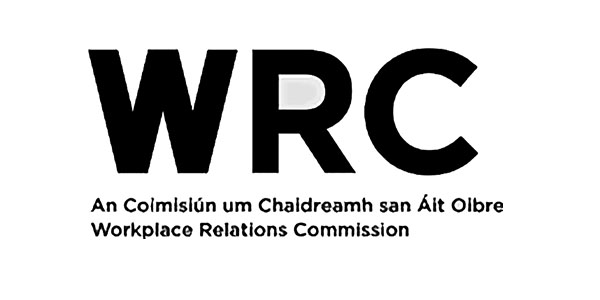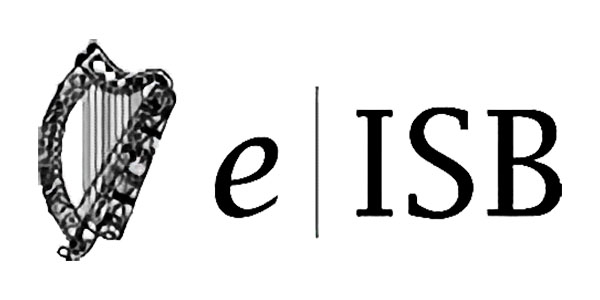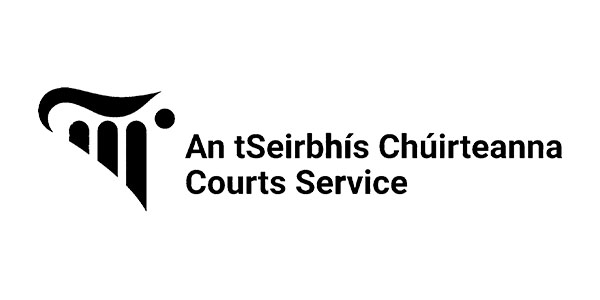What is a European Arrest Warrant?
The European arrest warrant (“EAW”) is a simplified cross-border judicial surrender procedure – for the purpose of prosecution or executing a custodial sentence or detention order. (en.wikipedia.org)
Since 2004, extradition between EU member states gas been governed by the European Arrest Warrant Framework Decision. This has been implemented in Ireland by The European arrest Warrant Act 2003 and 2012. http://www.irishstatutebook.ie/eli/2003/act/45/enacted/en/html and the Extradition Act 1965 (non EU Countries) allow for the transfer of people from one country to another country, for the purpose of prosecution or punishment of a criminal offence. Member state country evaluation reports suggest that the number of EAWs issued has increased from approximately 3,000 in 2004 to 15,200 in 2009, but dropped back to 10,400 in 2013. (citizensinformation.ie)
What are the EAW cases?
For example, the EAW was applied in the following cases: a terrorist involved in the Paris attacks caught in Belgium, an attacker of the Brussels Jewish Museum arrested in France, a failed London bomber caught in Italy, a German serial killer tracked down in Spain, a suspected drug smuggler from Malta surrendered by the UK, a gang of armed robbers sought by Italy whose members were arrested in 6 different EU countries.
We specialise in the following areas of Extradition Law;
- European Arrest Warrant / Surrender
- Procedure for Surrender / Extradition
- Refusing Surrender / Extradition
- Mutual Assistance
- Free Legal Aid Ireland, Emergency Solicitors throughout Ireland, Personal Injury Claims, Polish Solicitors, Advice in a Garda Station, Civil Litigation, Personal Injuries
The most important conditions surrounding an Application for Extradition are:-
- A person is charged with an offence in the requesting state which corresponds to a similar offence in Ireland, and which is punishable by imprisonment in both countries by at least a year;
- Ireland generally does not agree to the surrender of a person, if the person is going to be held for the purpose of investigation;
- The offence is not a political offence: or on connected with a political offence;
- The death penalty does not apply to the offence.
Being subjected to an extradition request can be an extremely traumatic experience. Defendants and their families often have little or no warning that an application will be made and brought before the Courts. In many circumstances, the law often allows only limited grounds to oppose and defeat the extradition request. It is therefore essential to access good advice at an early stage. We can also arrange for an interpreter to be present throughout the process. If you cannot afford to pay for a solicitor or interpreter you will be entitled to assistance under the Attorney General Scheme.
If you or a member of your family have been arrested and detained on foot of a European arrest warrant you should contact Baxter Mimnagh Solicitors as soon as possible on our 24 telephone line 0858619537 to ensure that you get specialist advice in this area.
The issuing judicial authorities in the EU country issuing the EAW should carry out a ‘proportionality check’. In particular, the following factors should be taken into account: (a) the seriousness of the offence (for example, the harm or danger it has caused); (b) the likely penalty imposed if the person is found guilty of the alleged offence (for example, whether it would be a custodial sentence); (c) the likelihood of detention of the person in the issuing Member State after surrender; (d) the interests of the victims of the offence.
What is the Schengen Information System (SIS)?
The Schengen Information System (SIS) is the most widely used and largest information sharing system for security and border management in Europe. SIS enables competent national authorities, such as the police and border guards, to enter and consult alerts on persons or objects. An SIS alert does not only contain information about a particular person or object but also instructions for the authorities on what to do when the person or object has been found. Specialised national SIRENE Bureaux located in each Member State serve as single points of contact for the exchange of supplementary information and coordination of activities related to SIS alerts.
At the end of 2019, SIS contained approx. 91 million records, it was accessed 6.6 billion times and secured 283,713 hits (when a search leads to an alert and the authorities confirm it). Source: https://www.eulisa.europa.eu
Ireland gained full access to the Schengen Information System (SIS II) on March 15, 2021, after the EU Council approved the Irish government’s request to join the system on December 10, 2020.
What is the purpose of the SIS?
The main purpose of SIS is to make Europe safer. The system assists the competent authorities in Europe to preserve internal security in the absence of internal border checks. The scope of SIS is defined in three legal instruments:
- Council Decision 2007/533/JHA (Law enforcement cooperation):
SIS supports police and judicial cooperation by allowing competent authorities to create and consult alerts on missing persons and on persons or objects related to criminal offences. - Regulation (EC) No 1986/2006 (Cooperation on vehicle registration)
Vehicle registration services may consult SIS in order to check the legal status of the vehicles presented to them for registration. They only have access to SIS alerts on vehicles, registration certificates and number plates. - Regulation (EC) No 1987/2006 (Border control cooperation):
SIS enables border guards and visa issuing and migration authorities to enter and consult alerts on third-country nationals for the purpose of refusing their entry into or stay in the Schengen area.
What happens when you are arrested on foot of a European Arrest Warrant or SIS Alert?
A person for whom a Schengen alert (SIS) has been issued by a judicial authority, may be arrested on grounds of urgency where it is believed that the person is likely to leave Ireland before a European Arrest Warrant can be received. A person arrested in these circumstances must be informed of a number of matters, as follows:
- That he or she may consent to being surrendered to the issuing state;
- The right to obtain or be provided with legal advice and legal representation concerning all matters relating to the warrant;
- The right to obtain or be provided with the services of an interpreter (where appropriate).
As soon as may be after arrest, the person must be brought before the High Court. The Court may remand the person in custody pending receipt of the Warrant or a facsimile thereof. If the warrant is not received within 7 days, the person will be released, but he or she may be released at any time by the Court where it appears that no warrant has been issued.
Issues which a court considers in determining whether to surrender a person to a requesting state:
(i) Is the Person sought for the purpose of Investigation or Prosecution in the requesting state?
A person can object to his/her surrender to a requesting state on the basis that his/her surrender is sought for the purpose of an investigation and not a prosecution of an offence. Section 21A of the 2003 Act places the burden of proving same on the person. The Courts are reluctant to surrender a person where a warrant was issued for the purpose of investigation of an offence alone. In circumstances, where the investigation might or might not result in a prosecution, would be insufficient to order the surrender of a person.
(ii) S.45 of European Arrest Warrant Act 2003
A person shall not be surrendered if her or she did not appear in person at the proceedings resulting in the sentence or detention order in respect of which the European arrest warrant was issued. In general, the court will refuse to surrender a person if they have been tried in absentia (in their absence) and without having a lawyer present. The Court will consider surrender if the requesting state guarantees a re-hearing or a right of appeal to the person if surrendered.
In Minister for Justice and Equality v Ziolkowski [2021] IEHC 198, the High court refused to surrender a person where the statutory requirements for trials in absentia were not met. The Court was not satisfied that the respondent had attended at the hearing which resulted in a finding of guilt.
(iii) Prison Conditions in Requesting State and Inhuman or Degrading Treatment
In Rettinger, the Supreme Court held that the test was that Irish Court must not surrender a person to another state where ‘there are reasonable grounds for believing that he will be subjected to inhuman or degrading treatment. Denham J. set out an eight point summary of the approach to be taken by a court where such an objection is raised as follows:-
- A court should consider all the material before it, and if necessary material obtained of its own motion;
- A court should examine whether there is a real risk, in a rigorous examination of the material;
- The burden rests on the person to adduce evidence capable of proving there are substantial grounds for believing that if he or she were returned to the requesting country he or she would be exposed to a real risk of being subjected to treatment contrary to Article 3 of the ECHR;
- It is open to the requesting state to dispel any doubts by evidence. This does not mean that the burden has shifted. Thus, if there is information from an applicant as to conditions in the prisons of a requesting state, with no replying information, a court may have sufficient evidence to find that there are substantial grounds for believing that if the applicant were returned to the requesting state he would be exposed to a real risk of being subjected to treatment contrary to Article 3 of the ECHR. On the other hand, the requesting state may present evidence which would, or would not, dispel the view of the court;
- The court should examine the foreseeable consequences of sending a person to the requesting state;
- The court may attach importance to reports of independent international human rights organisations, such as amnesty international, and to government sources, such as the US State Department;
- The mere possibility of ill treatment is not sufficient to establish the person’s case;
- The relevant time to consider the conditions in the requesting state is at the time of the hearing in the High Court. Although on appeal, an application could be made, under the rules of court, seeking to admit additional evidence, if necessary.
- In Minister for Justice v Angel [2020] IEHC 699, the High Court refused to surrender the respondent to Romania, to serve a sentence of two years and six months imprisonment for offence of driving a motor vehicle without a licence, on the grounds that the likely conditions of his detention will be in breach of the respondent’s right not to be subjected to inhuman or degrading treatment.
(vi) Article 8 and Family Rights
In such cases, where the respondent has an established family life, the answer to the first three questions will be in the affirmative. The court will then have to decide if such an interference would be disproportionate. The courts acknowledge that surrender will almost always lead to some severing of family relationships. Such a severance of family ties by surrender or imprisonment will not normally be seen as such a gross invasion of Article 8 rights as to amount to a breach of the Convention. The circumstances in which surrender for the purposes of prosecution or imprisonment will amount to a breach of Article 8 will be highly exceptional and likely to be exceedingly rare.
In considering whether surrender would constitute a violation of a person’s Article 8 and Family rights, the High Court has held (Peart J.) that four questions must be considered:-
- Does surrender constitute an interference with the respondents private/family life;
- If so, is that interference one that is in accordance with law;
- If further so, is the interference, by the surrender of the respondent, in pursuit of a legitimate aim or objective; and
- Further if so, whether the interference is necessary in a democratic society (the latter meaning it is justified by a pressing social need) and proportionate to the legitimate aim pursued.
Extradition to and from the UK
At 11pm on 31 December 2020, the prior European Arrest Warrant regime stopped applying to the UK in its current form. The regime continues to apply though to persons validly arrested under a European Arrest Warrant prior to that time.
The EU-UK Trade and Cooperation Agreement does however contain similar extradition rules and procedures to the European Arrest Warrant regime and these rules continue to allow extradition to Ireland from the UK and vice versa. These rules apply to extradition requests made after 11pm on 31 December 2020 and prior requests where the person sought had not been arrested at that time.
If you or a member of your family have been arrested and detained on foot of a European arrest warrant you should contact Baxter Mimnagh Solicitors as soon as possible on our 24 telephone line 0858619537 to ensure that you get specialist advice in this area






